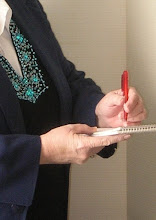Tomorrow I’ll begin posting my three-part investigative report on how the Associated Locksmiths Of America (ALOA) and the Florida West Coast Locksmith Association (FWCLA) answered the Florida Senate’s 14 questions on the impact of the bill they proposed. The information is vital because if the proponents’ answers were flawed and unchallenged, as they were when no one opposed the legislation in the committee meeting hearings, it could have resulted in a defective locksmith law and caused hardship for locksmiths for many years to come.
While I completed the report about two weeks ago, my editor, Carol, had it a week, then, of course, there was the inevitable talk with the attorney. It’s always good to get a legal opinion even if you have years of legal experience and almost one year of law school. I say, almost, because while I loved learning about law, I realized I didn’t want to be an attorney so dropped out near the end of the first year. The knowledge I received, however, was invaluable for conducting investigations as well as writing and researching legal and legislative issues, but I’d never be so foolhardy as to proceed into a prickly area without advice of counsel.
Investigative journalists who write blogs have to be judicious in what they write so as not to unintentionally draw a defamation suit. Defamation occurs when “one acts with reckless disregard for the truth.” Documenting every step taken in the investigation, obviously, provides the antidote to reckless disregard. Documentation also leaves a trail of breadcrumbs that some one else can follow if need be.
Investigative work and documentation are time-consuming because stories must be based on accurate facts and figures that are not always initially apparent. A friend, in his 70’s, recently shared sage advice about figures that he learned in his youth.
“Remember,” said Bill Nichols of Winter Park, “Figures do not lie, but liars sure can figure.”
Exactly! That’s what reporters seek to discover – who’s mischaracterizing issues, facts and figures and why? Who’s making what statements and for what purpose? Of course, there are those who sometimes make statements out of ignorance – they just don’t know enough about a situation and assume things or they repeat rumors. For others, it’s intentional. They have a plan. They have an agenda. There’s a goal in sight. At other times reporters just have to explain issues in concise terms so people can understand them. Investigative reporters are trained to sort things out and give a clearer picture of what is going on or what happened.
Part 1 of my report details the first two questions and part of Question 3 and includes: who would be regulated and how many of the locksmiths do the proponents say they represent; what associations are involved and the evidence ALOA and FWCLA presented on how Florida locksmiths have harmed the public.
See you tomorrow!
Subscribe to:
Post Comments (Atom)


No comments:
Post a Comment